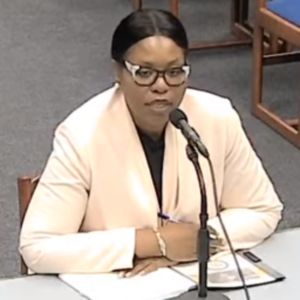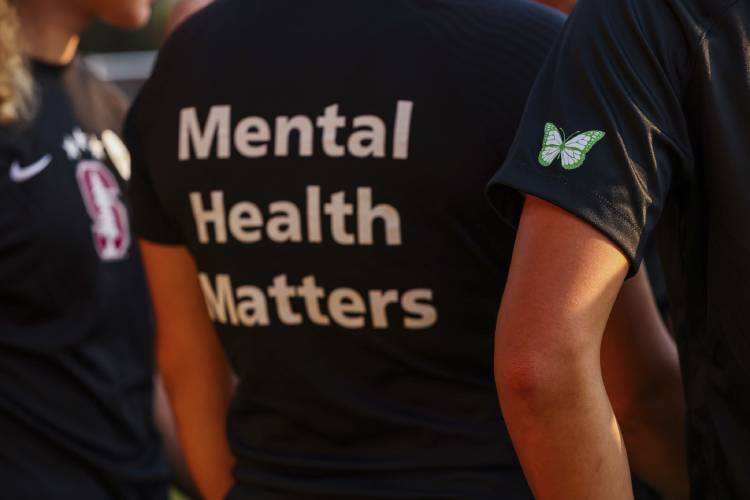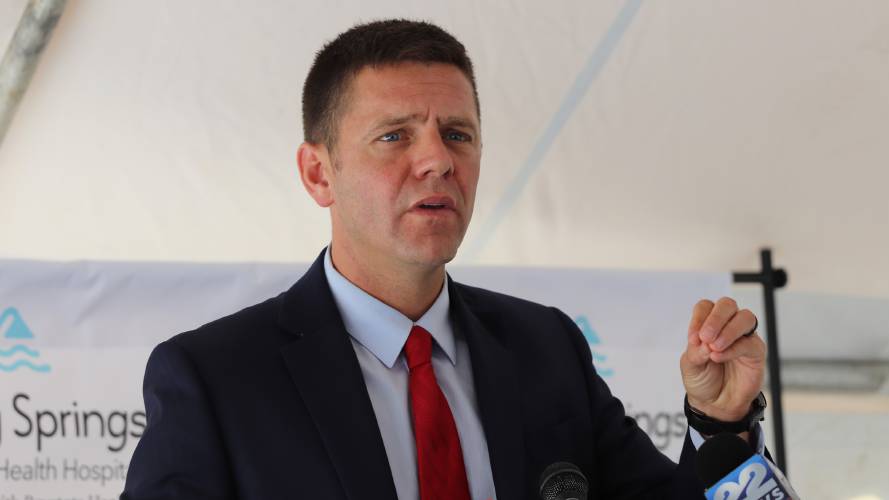Regional roadmap seeks to address youth mental health ‘crisis’
|
Published: 12-01-2023 5:36 PM
Modified: 12-02-2023 1:29 AM |
In response to the youth mental health crisis, as many experts have called it, the Public Health Institute of Western Massachusetts has worked with over 25 organizations and many stakeholders on a regional roadmap designed to get youth the help they need.
The roadmap, which was presented at a well-attended UMass Amherst forum in November, focuses on the prevention of mental health conditions as well as the promotion of mental health wellness. Its authors also throw their support behind several pieces of legislation currently before the Legislature designed to address the crisis.
“We cannot treat our way out of the mental health crisis … we have to prevent our way out,” said Kat Allen, coordinator for the Communities that Care Coalition, which works to promote the health of young people in western Massachusetts.
That prevention requires a systemwide approach involving schools, homes, health care, education and other avenues.
The main findings and recommendations in the roadmap fall into five categories: social connection, social-emotional learning, social media, destigmatizing, and community-clinical linkages.
Even before the pandemic, but especially since then, teens have spent less time connecting with one another face-to face.
The roadmap calls on local governments, organizations, schools and health care to make social connection a priority.
“It may be something we take for granted and don’t think we need to be intentional about,” said Kathy Mague, a contributor to the report. She emphasized a need to “create and structure environments, policies and practices to foster enhanced connection between people.”
Article continues after...
Yesterday's Most Read Articles
 Homeless camp in Northampton ordered to disperse
Homeless camp in Northampton ordered to disperse
 The Iron Horse rides again: The storied Northampton club will reopen at last, May 15
The Iron Horse rides again: The storied Northampton club will reopen at last, May 15
 Final pick for Amherst regional superintendent, from Virgin Islands, aims to ‘lead with love’
Final pick for Amherst regional superintendent, from Virgin Islands, aims to ‘lead with love’
 Authorities ID victim in Greenfield slaying
Authorities ID victim in Greenfield slaying
 Reyes takes helm of UMass flagship amid pro-Palestinian protests
Reyes takes helm of UMass flagship amid pro-Palestinian protests
 Police report details grisly crime scene in Greenfield
Police report details grisly crime scene in Greenfield
The report also recommends increasing resources and education around social and emotional learning, an educational method that teaches skills to manage emotions, feel empathy, foster supportive relationships and make caring decisions.
Social media, while it can be a beneficial tool for teens, should also be an educational focus area to teach strategies for healthy usage.
Community-clinical linkages are also identified as a key focus area as a “way to bridge that gap between prevention, promotion and treatment,” roadmap researcher Kathleen Szegda said at the forum.
According to the roadmap, youth mental health needs to be a part of the conversation across settings including primary health care, homes, law enforcement, community organizations, arts and culture, sports and schools.
The report also endorses three bills currently before the state Legislature as an important part of the puzzle, all of which address schools.
“This pain is being felt universally throughout my district and beyond,” said state Sen. John Velis, co-chair of the Joint Committee on Mental Health, Substance Use & Recovery.
“We need to have a very holistic approach to this; it needs to be school-based behavioral health, it needs to be increasing the number of beds that are out there for inpatient psychiatric beds,” Velis said. “But 90% of our kids are in the Massachusetts public schools, so [schools are] a good place for us to invest some significant resources.”
One bill before the committee would establish a child and adolescent behavioral health implementation coordinating council, which would create a three-year plan to establish a statewide school-based system.
Velis said the largest concern and area of opportunity in the bill is to “make sure that we’re not going in with a broad brush and saying… we know what is best for the entirety of kids in Massachusetts.”
“It needs to be very specific and individually-based based on the communities in question,” he said, adding that even between communities like Easthampton and Holyoke, which border one another, the needs of students differ.
Another proposed bill would allow schools to seek reimbursement for Medicaid-covered services, which would support school health programming and services.
The report also recommends a bill that would update the physical education mandate in grades K-12 to make mental health education a learning requirement in all public and private Massachusetts schools.
The bill does not mandate any specific curriculum, but rather aims to provide students with a holistic understanding of health that recognizes the relationship between physical and mental health.
“The research shows that early interventions work, so if we can get kids when they’re younger, the hope is that we might be able to get them the help that they need to prevent some of those downstream manifestations of these behavioral health concerns,” Velis said.



 Federal probe targets UMass response to anti-Arab incidents
Federal probe targets UMass response to anti-Arab incidents Locking up carbon for good: Easthampton inventor’s CO2 removal system turns biomass into biochar
Locking up carbon for good: Easthampton inventor’s CO2 removal system turns biomass into biochar William Strickland, a longtime civil rights activist, scholar and friend of Malcolm X, has died
William Strickland, a longtime civil rights activist, scholar and friend of Malcolm X, has died
